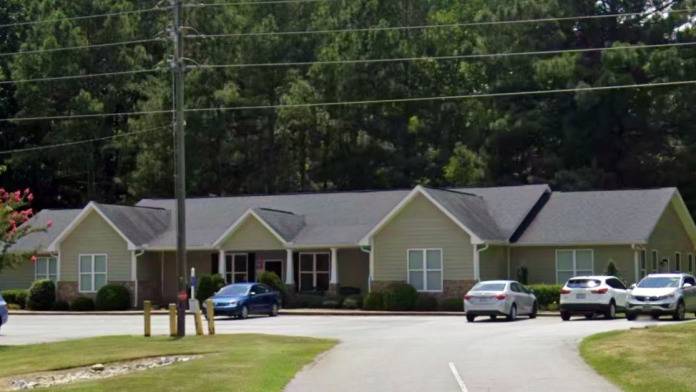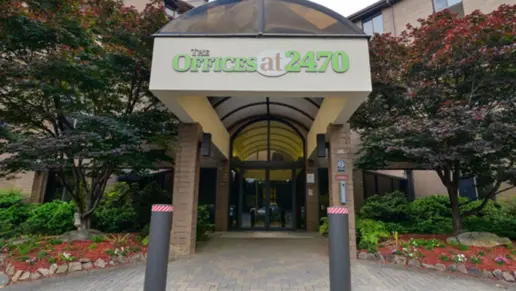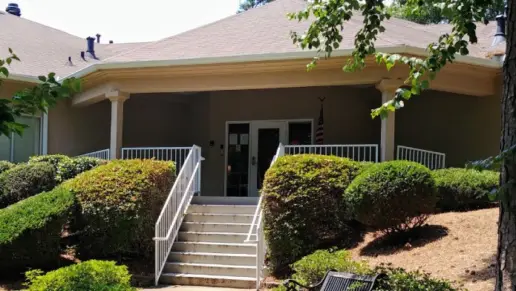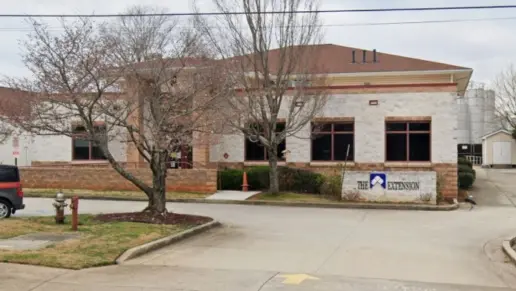Warning: Look out that your child don't end up in a Phych ward or mentlal hospital for adults. If your child has insurance, use your own psychiatrist and/or physiologist. Stay away from here. They change staff every other month and you never know who will be handling your ch ...
About Mcintosh Trail Community Service Board — Fayette County Counseling Center
The Mcintosh Trail Community Service Board, Fayette County Counseling Center is located in Fayetteville, Georgia. They provide mental health and addiction treatment services for children, adolescents and adults. They specialize in outpatient and inpatient services.
If you’re dealing with mental health issues or having emotional disturbances you can reach out to the Fayette County Counseling Center for their services. A Master’s level clinician will evaluate your situation and determine the best plan of treatment that fits your situation.
Then, you’ll have a psychiatric evaluation and they might assign a nurse to your case. Depending on the outcome of all of this, you may get a medical evaluation and be monitored for your health. They might also recommend personal, family, or group therapy and community support or crisis intervention if need be. They may also refer you to some of their specialty services like Assertive Community Treatment (ACT) or general community support.
Another specialty service they have is a program called New Choices which is for women who are battling drug or alcohol addiction. They have an Addictive Disease Program which helps adults and adolescents struggling with substance abuse in an outpatient setting. The outpatient services range from group and family involvement to diagnostic and psychiatric evaluation and nursing services.
In addition to their outpatient treatment, they also have a special service called Inspirations. This is an inpatient residential treatment program for adults struggling with severe mental illness, who are experiencing a crisis after a behavioral or emotional disturbance.
They also offer services for court ordered clients and provide multiple offender evaluations for the Department of Family and Children Services. In this program, you’ll have access to risk education and can find help for family violence and anger management problems.
One former patient here said the staff members are great, committed and caring people. Another person said they definitely saved their life and she’ll be forever thankful to her counselor.
Latest Reviews
Rehab Score
Gallery

Location
Other Forms of Payment
Medicaid is a state based program that helps lower-income individuals and families pay for healthcare. Medicaid covers addiction treatment so those enrolled can use their coverage to pay for rehab. When a program accepts Medicaid the client often pays very little or nothing out of their own pocket.
Private insurance refers to any kind of healthcare coverage that isn't from the state or federal government. This includes individual and family plans offered by an employer or purchased from the Insurance Marketplace. Every plan will have different requirements and out of pocket costs so be sure to get the full details before you start treatment.
Self-pay involves paying for treatment out of your own pocket. You can use savings or credit, get a personal loan, or receive help from family and friends to fund your treatment. If you don't have insurance or your insurance plan doesn't cover a specific program, self-pay can help ensure you still get the care you need.
Medicare is a federal program that provides health insurance for those 65 and older. It also serves people under 65 with chronic and disabling health challenges. To use Medicare for addiction treatment you need to find a program that accepts Medicare and is in network with your plan. Out of pocket costs and preauthorization requirements vary, so always check with your provider.
Sliding scale payments are based on a client's income and family size. The goal is to make treatment affordable to everyone. By taking these factors into account, addiction recovery care providers help ensure that your treatment does not become a financial burden to you or your family, eliminating one barrier to care.
Addiction Treatments
Levels of Care
Treatments
The goal of treatment for alcoholism is abstinence. Those with poor social support, poor motivation, or psychiatric disorders tend to relapse within a few years of treatment. For these people, success is measured by longer periods of abstinence, reduced use of alcohol, better health, and improved social functioning. Recovery and Maintenance are usually based on 12 step programs and AA meetings.
A quality drug rehab in Georgia can help you overcome addiction. This environment is designed to help you address the complex issues contributing to drug dependence. The goal of treatment is to give you the tools you need to make a full recovery.
A combined mental health and substance abuse rehab has the staff and resources available to handle individuals with both mental health and substance abuse issues. It can be challenging to determine where a specific symptom stems from (a mental health issue or an issue related to substance abuse), so mental health and substance abuse professionals are helpful in detangling symptoms and keeping treatment on track.
Programs


Clinical Services
Research clearly demonstrates that recovery is far more successful and sustainable when loved ones like family members participate in rehab and substance abuse treatment. Genetic factors may be at play when it comes to drug and alcohol addiction, as well as mental health issues. Family dynamics often play a critical role in addiction triggers, and if properly educated, family members can be a strong source of support when it comes to rehabilitation.
Group therapy is any therapeutic work that happens in a group (not one-on-one). There are a number of different group therapy modalities, including support groups, experiential therapy, psycho-education, and more. Group therapy involves treatment as well as processing interaction between group members.
In individual therapy, a patient meets one-on-one with a trained psychologist or counselor. Therapy is a pivotal part of effective substance abuse treatment, as it often covers root causes of addiction, including challenges faced by the patient in their social, family, and work/school life.
McIntosh Trail Community Service Board offers Supported Employment. They assist adults with Mental Health Diagnosis and/or Substance-Related Disorder who express a desire for competitive employment. Services include supports to access benefits counseling: identify vocational skills and interests; and develop and implement a job search plan to obtain employment based on the individual's strengths, preferences, abilities and need.
Trauma therapy addresses traumatic incidents from a client's past that are likely affecting their present-day experience. Trauma is often one of the primary triggers and potential causes of addiction, and can stem from child sexual abuse, domestic violence, having a parent with a mental illness, losing one or both parents at a young age, teenage or adult sexual assault, or any number of other factors. The purpose of trauma therapy is to allow a patient to process trauma and move through and past it, with the help of trained and compassionate mental health professionals.
Amenities
-
Private Setting
Accreditations

The Commission on Accreditation of Rehabilitation Facilities (CARF) is a non-profit organization that specifically accredits rehab organizations. Founded in 1966, CARF's, mission is to help service providers like rehab facilities maintain high standards of care.
CARF Accreditation: Yes
Contact Information
715 Bradley Drive
Fayetteville, GA 30214


